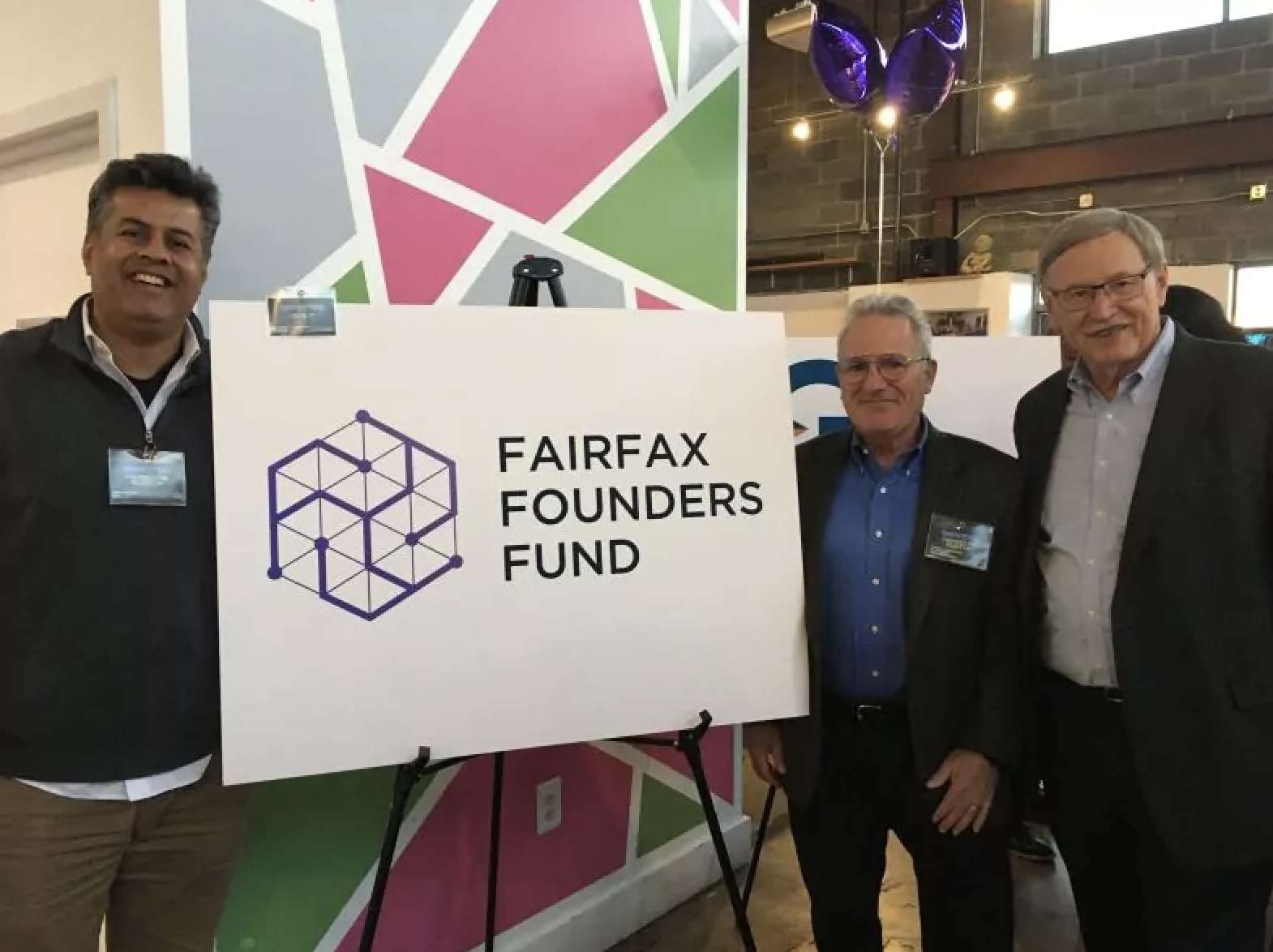
A medical device printer in Herndon is among five local companies that will receive funding from Fairfax County’s new grant program for startups.
3D Orthobiologic Solutions (3DOS), which launched in 2019, seeks to manufacture 3D-printed medical devices and dental impacts.
“Their IP technology licenses a Stanford University patent. The company has been accepted by Johnson & Johnson’s accelerator program JLABS,” the county said in an overview.
The Fairfax County Department of Economic Initiatives announced the inaugural winners of Fairfax Founders Fund grants earlier this month. The fund is intended to support companies that are involved in creating innovative technology products and have demonstrated potential for growth.
The other four companies that received funds are:
- Anapact: An Alexandria-based company that makes smart headgear for boxers and MMA fighters to offer real-time feedback on performance, impact and damage.
- BloomCatch: The Centreville company aims to combat the growing labor shortage in the gardening industry by offering digital access to plant care information through an app to train employees.
- NearStar Fusion: The Chantilly-based company, which was founded in 2023, provides a globally scalable clean fusion energy option by using pulse plasma guns as a new component for a fusion power plants.
- Healp: The company, which is based in Fairfax Station, provides an app that connections patients and medical providers that focuses on rare conditions and illnesses at no cost to the patient.
“We are delighted to recognize and support these exceptional startups in Fairfax County,” Department of Economic Initiatives Director Rebecca Moudry said in the announcement. “These grants will empower our local firms to advance their innovations, meet business goals, and drive economic growth and technological progress in our community.”
The application period for the next round of funding runs from Nov. 27 through Jan. 8. Companies receive up to $50,000 to prepare for later-stage investment.
To be eligible, companies must be based in Fairfax County, have raised no more than $1 million of startup funding so far and have received no more than $250,000 gross revenue in the 12 months before they apply, among other criteria.
First proposed in July 2021, the Fairfax Founders Fund was conceived as a way to support female, Black and Hispanic entrepreneurs, who are less likely to receive investments for startups from other sources than male and white entrepreneurs.
“The primary objectives of the fund are to stimulate economic development, connect startups with local resources and partnerships, and promote economic mobility by ensuring that early-stage capital is accessible to entrepreneurs from diverse backgrounds,” the Fairfax County Economic Development Authority said.
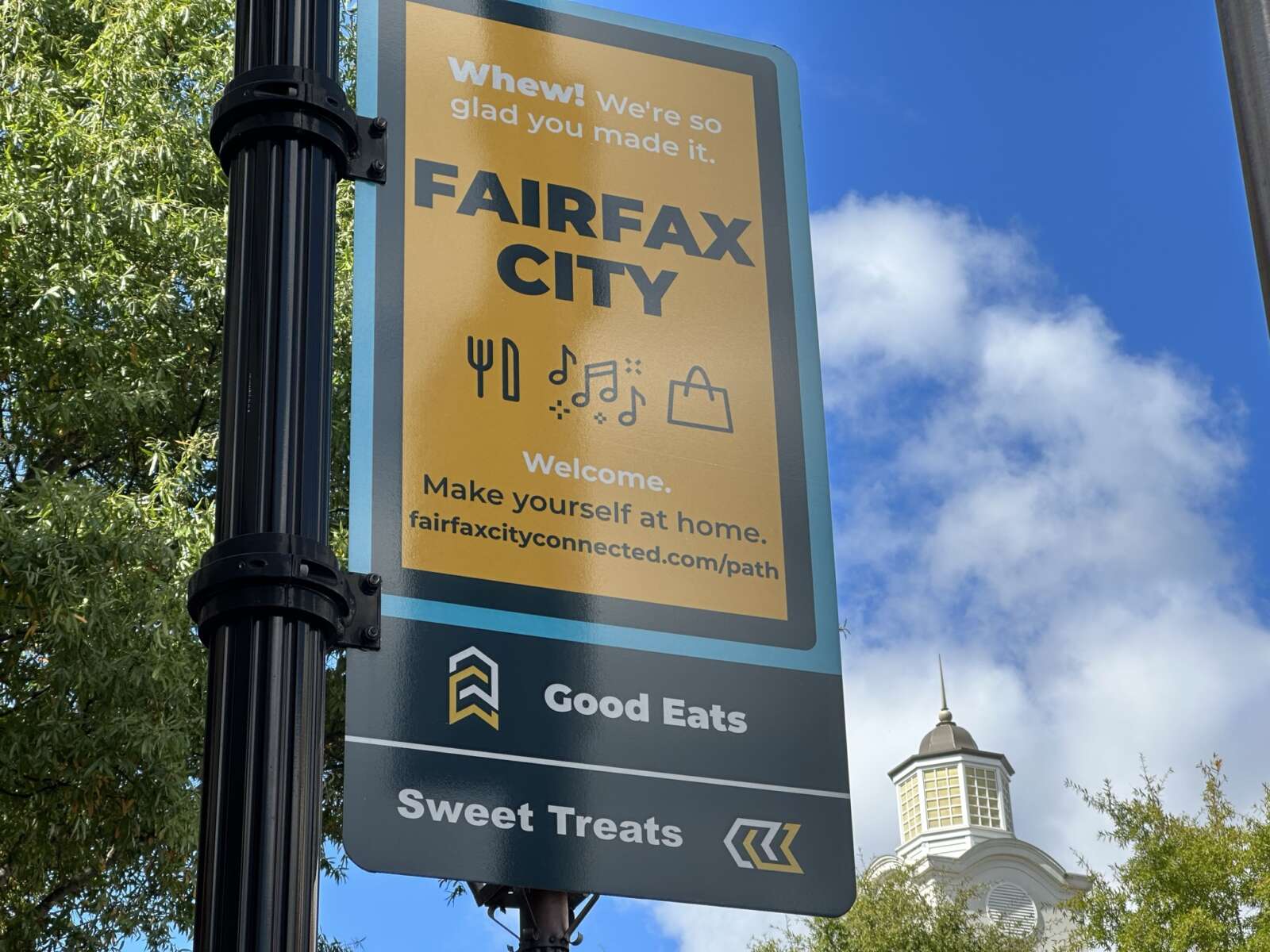
Fairfax City is browsing for makers of art, crafts and other products who want to expand beyond an online shop or farmers’ market stall but aren’t quite ready to commit to a full storefront.
Those are the budding entrepreneurs that the Fairfax City Economic Development team (FCED) hopes to attract to Wander In, an upcoming retail incubator store that the city is developing with the Old Town Fairfax Business Association (OTFBA).
Announced in September, the store is expected to launch this coming winter in Old Town Plaza, replacing Sylvan Learning’s tutoring center at 3950 University Drive, Suite 211.
“Establishing Wander In as a business incubator in our historic downtown plaza is an important step in building Fairfax City’s small business retail,” Mayor Catherine Read said in the press release. “It’s a path for our local artisans from online sales and festival participation to a brick and mortar presence. Located in close proximity to a free parking garage and three very busy restaurants with outdoor dining, this multi-vendor retail offers residents and visitors a reason to wander in.”
The FCED and OTFBA concocted the idea for Wander In after the city received a grant that it wanted to use to help small businesses grow, according to Tess Rollins, the business association’s executive director.
Initially, the economic development office suggested opening a temporary pop-up store, but the local business owners on OTFBA’s board of directors were wary of supporting a new business that could compete for customers and the association’s attention.
Rollins and the FCED then pitched the board on the concept of an incubator that would not only provide retail space for up-and-coming businesses, but also educational events and resources to give them the skills needed to be viable long-term — and potentially open a permanent brick-and-mortar location in the city.
“They were more receptive of basically helping…small businesses grow because each one of them has their own establishment, whether it’s a restaurant or a retail store,” Rollins said. “So, they felt that was more in line with the mission and the core values of Old Town Fairfax Business Association.”
Applications for prospective Wander In vendors are now being accepted. Vendors must stay in the space for at least three months, be OTFBA members, obtain a city business license after the first 30 days, and pay a $200 fee each month, along with 10% of sales.
Rollins says one of the initiative’s goals is to promote businesses in Fairfax City, but it’s also open to businesses and entrepreneurs based outside city limits.
“We do want to promote other businesses who may be looking for a place in Fairfax City to see if our community is a good place for them to have an additional location,” she told FFXnow.
At the moment, there’s no limit on how many vendors will be accepted, since the capacity will depend on how much room each business needs. While most will likely sell jewelry, paintings or other artisan goods, Rollins says prepackaged food vendors could be considered.
FCED and OTFBA worked with Old Town Plaza manager Kimco Realty to secure the suite, which is in the same building as the recently opened Commonwealth Brewing Co. With the pub Earp’s Ordinary also on the way, the shopping center’s revitalization is central to the city’s Old Town Fairfax Small Area Plan, which was adopted in 2020 and seeks to make the historic downtown more active and pedestrian-friendly.
To encourage collaboration between businesses and with the larger community, Wander In will work with George Mason University’s Small Business Development Center to assist and provide training to the vendors. It will also host events both inside the store, where customers can meet and learn from the vendors, and outside.
Rollins suggests shopping days or scavenger hunts that involve other Old Town retailers as possibilities.
“I love the idea of the mix of having retail shopping with a creative experience, whether it’s ‘Meet the Maker’ or whether it’s one of their classes,” Rollins said. “I think that having the combination of the two is going to bring something different to Old Town.”
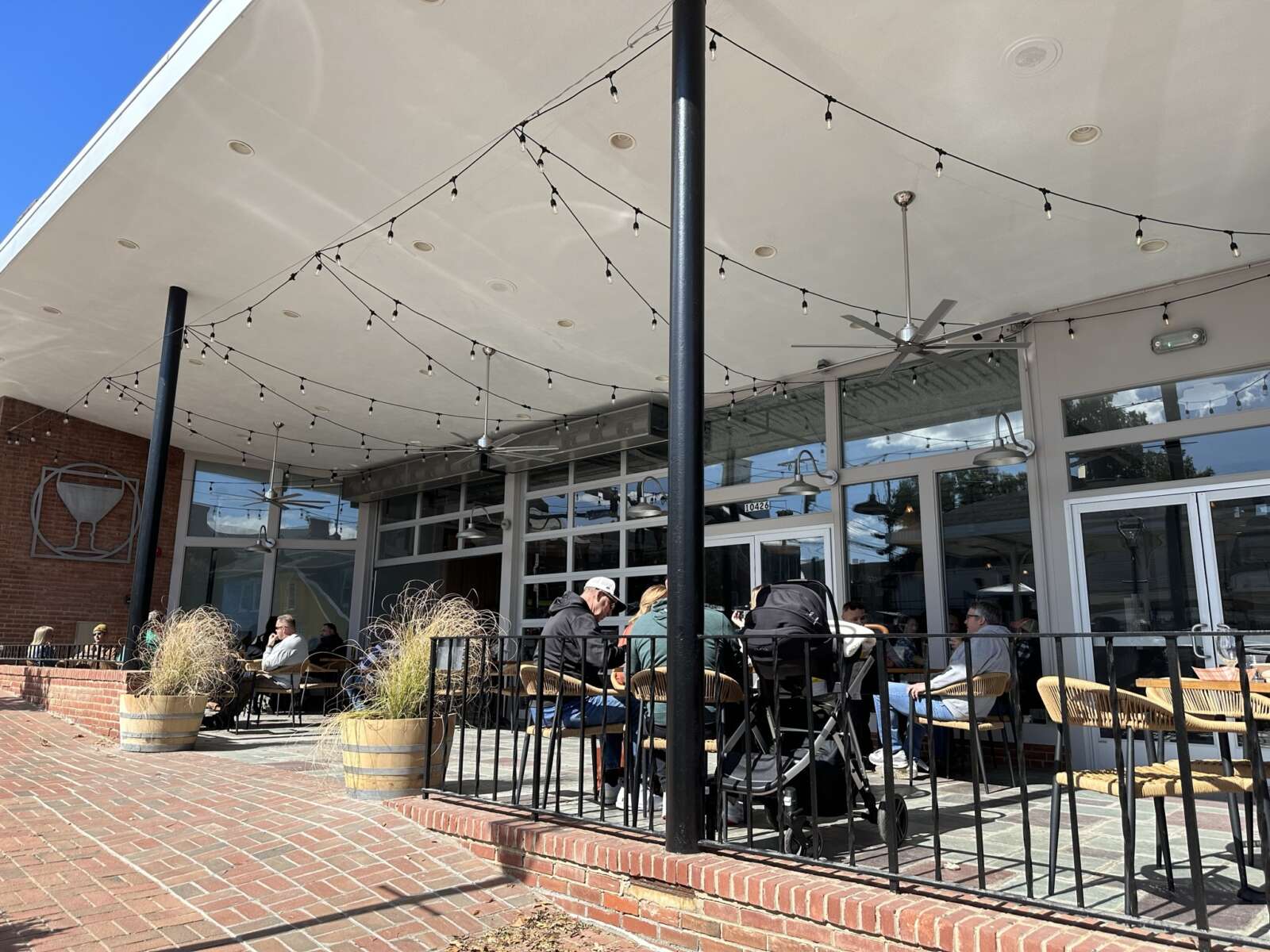
The City of Fairfax has high hopes for Commonwealth Brewing Co.
The Virginia Beach-based company opened its second brewery and restaurant at 10426 Main Street with a ribbon-cutting ceremony on Sept. 28, bringing new life to a space that has been vacant since at least 2015.
While customers were no doubt looking forward to trying the establishment’s specialty brews and wood-fired pizzas, the city’s economic development team saw the long-awaited launch as a sign that its ongoing efforts to revitalize Old Town are paying off.
“With Commonwealth opening up and its acclaim and reputation from how well they’ve done in Virginia Beach, it’s going to become really a regional destination for people to come and visit and really spend time in our downtown,” said Nicole Toulouse, senior assistant director for Fairfax City Economic Development (FCED).
Established in a former Virginia Beach fire station in 2015, Commonwealth Brewing began as an outgrowth of founder and owner Jeramy Biggie’s longtime hobby of home-brewing beer. He and his wife Natalie spent a decade “passively researching” before using their retirement savings to start their own business, he previously told FFXnow.
The risk has evidently paid off. Commonwealth rode a wave of growing local interest in craft brews to become a neighborhood favorite known for its artistic beer cans and communal, beer hall-style environment.
The FCED hopes the brewery can replicate that success in historic downtown Fairfax. A block away from Old Town Hall, the roughly 8,000-square-foot space had attracted interest from different potential tenants, but it wasn’t until Commonwealth that “we finally found the right fit,” Toulouse says.
The brewery will be joined in its efforts to create a new community gathering spot by Earp’s Ordinary, which is expected to open a permanent music venue and pub in the same building later this year.
“We really think that Commonwealth will be a gathering place for the entire region,” she told FFXnow. “It has a large, open-concept plan with indoor and outdoor seating, with communal tables available, and so, it’ll be a place that people can meet their neighbors and also host events. So, we’re really excited for it to kind of be a keystone retailer in the heart of Old Town.”
Toulouse says attracting and supporting small, boutique businesses like Commonwealth or the recently opened Lucy Loves vintage shop in Old Town has been a priority for the FCED, even as the city encourages more mixed-use activity with a small area plan adopted in 2020.
Seeking to “reimagine” the city’s downtown as a walkable cultural destination, the plan calls for a major shift toward multifamily residential uses around a commercial core focused on “local, regional food services along with cultural use and specialty retail.”
So far, the plan has opened the door for a performing arts center, along with condominiums and more retail and office space. Though some residents fear Old Town will lose its historic charm, Toulouse believes the city’s vision strikes an effective balance between preserving its past and paving the way for a more vibrant future.
“It will still maintain that quaint and cute feel throughout the evolution of Old Town’s development,” Toulouse said. “That being said, it is the main attraction to the city, to kind of visit all of these old historic buildings, and so, we’re excited to have activated storefronts like Commonwealth that are able to bring people into the city and stay here.”
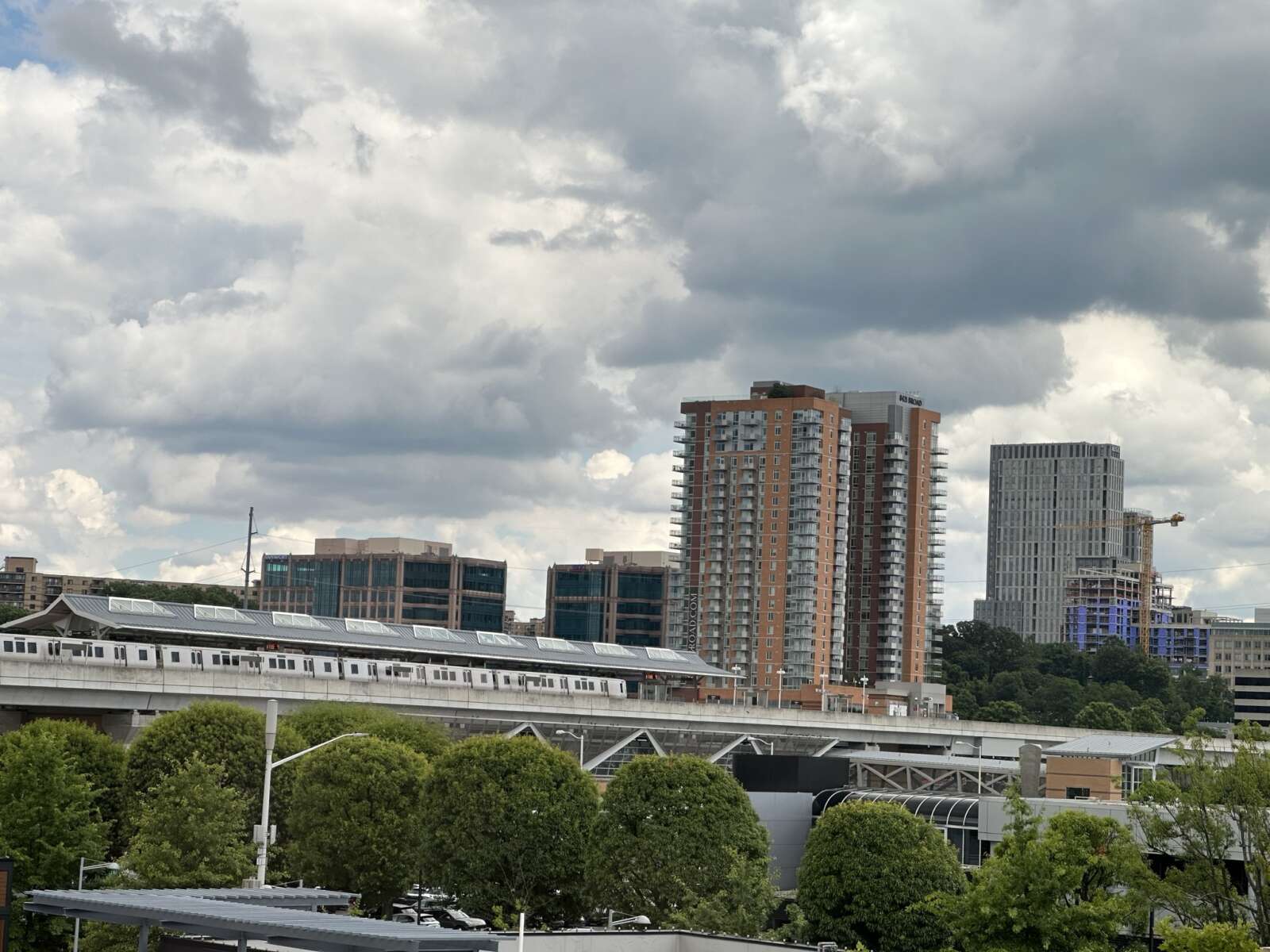
If Fairfax County were to get a casino, state Sen. Dave Marsden would prefer to see it in Tysons, not Reston, as has reportedly been proposed.
The prospect of a casino has drawn strong pushback from both residents and some elected officials, but Marsden argues that the county needs to consider all options to diversify its commercial tax base, as the office market continues to lag in the pandemic’s wake.
While Tysons has gotten more residents over the past decade, the area’s generally commercial makeup and four Metro stations would make it “the ideal place” for an entertainment district that could include a casino, Marsden says.
“That’s becoming Fairfax County’s downtown, and we want to locate it on the Silver Line because that’s what the Silver Line was built for,” the senator told FFXnow. “…It wasn’t just to bring in commuters from Loudoun County or to get people to the airport. It was designed also to allow for higher density development: high-rise apartments and office buildings and what have you.”
Marsden, who represents parts of Burke, Centreville and Annandale in the 37th Senate District, and Del. Wren Williams (R-9) filed identical bills in January that would’ve added Fairfax County to the small list of Virginia localities authorized to consider hosting a casino.
Though the legislation was quickly withdrawn, the subject reemerged late last month when Patch reported that the developer Comstock hopes to build a casino near the Wiehle-Reston East Metro station, where it has been constructing the massive Reston Station neighborhood.
A member of the Senate finance committee, Marsden confirmed to FFXnow that he met with Comstock twice — once while drafting his original bill and once since then. He says he otherwise hasn’t been approached by anyone about a casino in Tysons or anywhere else in Fairfax County.
Comstock doesn’t have any properties in Tysons right now, but it pitched a redevelopment of the Koons auto dealerships at 2000 and 2050 Chain Bridge Road last year as part of the county’s site-specific plan amendment (SSPA) process. The nomination didn’t advance after county staff determined a comprehensive plan change isn’t necessary to allow mixed-use development on the site.
The developer — which donated $10,000 to Marsden’s reelection campaign on June 22, per the Virginia Public Access Project — didn’t return multiple requests for comment.
Marsden says he’s “certainly very strongly looking at” re-introducing the casino bill in the 2024 General Assembly session if he wins the election for the newly created 35th District, though it likely won’t be identical to the one introduced this year.
“I do want to talk to some of our elected folks in Fairfax County to see how they would want the bill structured, to take a look at it,” he said.
He stresses that the goal of the bill isn’t to impose a casino on the county, but rather, to give the county an option that’s currently off limits.
As a Dillon Rule state, Virginia localities only have the powers explicitly granted to them by the General Assembly, an approach that Fairfax County officials argue limits their ability to do everything from exploring different revenue sources to lowering speed limits on dangerous roads.
If Marsden’s bill gets adopted by the General Assembly, the county would be required to hold a referendum asking voters whether a casino should be permitted.
“[Comstock’s] idea for an entertainment district, I think, is a reasonable idea that the county needs to consider,” Marsden said. “Ultimately speaking, I will not make the decision as to whether Fairfax County has a casino or where it’s located, but merely give them the opportunity to make that decision for themselves.” Read More
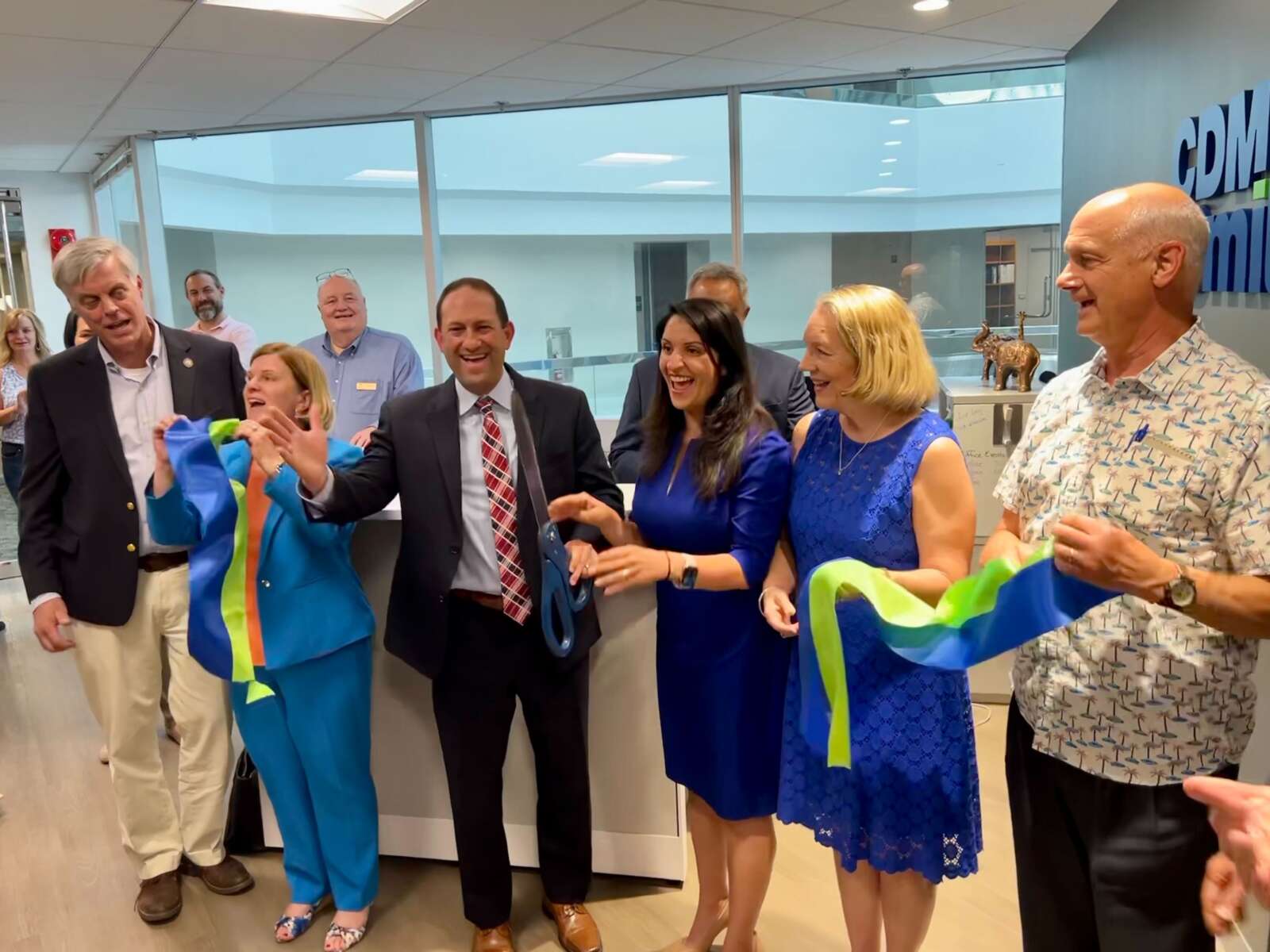
At a time when cities from D.C. to San Francisco are grappling with historically high vacancy rates, Fairfax City is feeling pretty good about the rising demand for its commercial space.
General commercial vacancy rates have dropped from 6.6% at the beginning of 2023 to 6% in the third quarter, Fairfax City Economic Development (FCED) — a partnership between the city’s economic development office and the Fairfax City Economic Development Authority (EDA) — reported last week.
The downward trend extends to both offices, where vacancies have gone from 9.8% to 9%, and retail, which has dropped from 2.8% to 2.3%, according to FCED.
Local economic development officials attribute the city’s relative success on this front to lower market-rate rents and “more right-sized opportunities” compared to larger markets. Office rental rates in the city currently average $24.8 per square foot, while retail space rents at an average of $30.7 per square foot.
“This data shows that Fairfax City is competitive and in demand,” FCED Director and President Christopher Bruno said in a statement. “As a city, we provide our residents and businesses excellent services and they want to be here. Northern Virginia, and Fairfax City, are the ideal locations to start, expand, and develop new companies.”
The declines reported by Fairfax City defy nationwide trends in commercial real estate. A recent report by the firm Colliers found that, as of the second quarter, 20.2% of commercial spaces in the U.S. were unoccupied, a rate that exceeds the previous record set during the 2008 recession, according to Business Insider.
In July, Fairfax County, which has the country’s second largest suburban office market, reported a 16.7% office vacancy rate — its highest in 10 years.
With the pandemic-fueled embrace of remote and hybrid work looking more like a long-term reality, despite some companies mandating office returns, many businesses have opted for smaller workspaces, while property owners try to entice tenants with renovations and added amenities.
Like other localities, Fairfax County has seen a surge in development projects seeking to convert or replace underutilized commercial space with housing, raising some concerns about how the shift will affect taxpayers and public services.
Fairfax City hasn’t seen as robust a push to turn offices into housing, receiving one inquiry about a potential conversion from an office building owner but no formal applications, according to Nicole Toulouse, FCED’s senior assistant director of business investment.
Toulouse, who’s also the senior vice president of the Fairfax City EDA, couldn’t permitted to publicly identify the building, since a proposal hasn’t been officially submitted. But she says it’s a “highly tenanted building” with a vacancy rate under 4%.
“To me this shows that is likely a general portfolio move by the owner and not based on the performance of the building,” Toulouse told FFXnow.
As part of its pandemic recovery efforts, FCED has established several initiatives aimed at filling the city’s commercial spaces, including a grant program for businesses that lease space in high-vacancy office buildings and a Technology Zone that gives tax incentives to tech businesses that sign a lease lasting five years or longer.
While not related to leasing, the city has also partnered with the Town of Vienna to develop a culinary workforce training program that will support local restaurants.
“We’ve long felt that Fairfax City is optimally positioned for the relocation and growth of businesses, particularly those looking to locate in the geographic center of Northern Virginia’s steady and innovative economy,” Fairfax City EDA Chair Beth Young said. “FCED’s programs create expanded opportunities for businesses who otherwise may look elsewhere.”

Fairfax County is considering a pilot program to support more murals in its commercial revitalization areas.
The pilot program, called Paint It! Fairfax, was introduced at a Fairfax County Board of Supervisors economic initiatives committee meeting on Tuesday (Sept. 19).
If approved, the program would allocate $400,000 to complete at least two murals in the county’s Commercial Revitalization Districts (CRD) and Commercial Revitalization areas (CRA).
Richmond Highway would receive $85,000, with the rest spread out between the other CRDs and CRAs in Annandale, Bailey’s Crossroads and Seven Corners, Lake Anne, Lincolnia, McLean, Merrifield and Springfield, according to Jenee Padmore, a planner with the Department of Planning and Development’s Office of Community Revitalization.
Murals would remain on the property for at least five years, and artists would agree to repair the mural if it’s defaced or vandalized for a minimum of five years.
The program would begin with site identification and an agreement with the property owner, followed by calls for submission. The artist and committee would then work to finalize a concept to be presented to the community for input, followed by approval from the program director.
A Site and Artist Selection Committee would manage the program.
Elizabeth Hagg, deputy director of the community revitalization office, said that the program was developed at the board’s direction.
“If the board should confirm that this proposal is on target, our intention would be to come back to the board to seek funding through the economic reserve fund,” Hagg told the committee.
Springfield District Supervisor Pat Herrity encouraged staff to leverage students and community members to create and design the murals.
Overall, the board said they were supportive of the program. Franconia District Supervisor Rodney Lusk, for example, noted that the addition of a mural at The Boro in Tysons is a significant asset. Some developers choose to install murals without specific direction from the county.
“I’m just in awe of it every single time. And I’ve looked at it so many different times,” Lusk said.
Providence District Supervisor Dalia Palchik encouraged staff to consider adjusting the program timeline so that community input was prioritized earlier in the process.
“My big concern about this is the order,” she said.

The Town of Vienna and Fairfax City believe two cooks would be better than one when it comes to concocting a culinary workforce program to support their local restaurants.
The economic development teams from both localities have joined forces to develop a program that could provide job training or help businesses identify prospective, qualified employees.
The initiative is still in its developmental stages, the Town of Vienna Economic Development Division and Fairfax City Economic Development (FCED) told FFXnow. A survey to get input from local businesses on their biggest staffing needs and concerns is set to close today (Friday).
“We have been collaborating closely with our local restaurateurs to gain a deeper understanding of their staffing requirements and needs through a survey,” Vienna Economic Development Director Natalie Monkou and Fairfax City Economic Development Programs Manager Tara Bowery said in a joint statement. “Once these are clarified, we will have a clearer picture of the potential program’s scope and can begin to solidify the programmatic details.”
The localities started discussing the idea of a workforce development program focused on food service after observing similar challenges for their businesses during the height of the pandemic, which strained an industry where business longevity was rare and work precarious even before COVID-19.
According to CNN, there were about 72,000 fewer restaurants in the U.S. last year than in 2019, with one research firm projecting in February that another 1,000 restaurants could be gone by the end of this year.
Citing Bureau of Labor Statistics estimates, the National Restaurant Association says that, as of August, employment has nearly returned to pre-shutdown February 2020 levels, but hiring is still lagging for full-service restaurants. Earlier this year, about 62% of restaurants reported being understaffed.
Despite those nationwide trends, the FCED and Vienna Economic Development Division say their culinary scenes are “growing and exciting,” as showcased in regular Restaurant Week campaigns that they organize, respectively, in summer and winter and in the spring.
“Through these events and other economic development initiatives, our respective economic development agencies have learned more about our local restaurants and food-based businesses,” the agencies said.
Monkou and Bowery hope that, by combining resources and experiences with promoting businesses both locally and regionally, they can enhance the planned workforce development program’s impact.
“Our interest lies in forging partnerships with regional agencies, recognizing that collaboration amplifies the impact of our initiatives,” they said. “…We believe that joining forces will bolster the culinary workforce, ultimately contributing to the economic vitality of our communities.”
There’s no set timeline yet for when the program could launch, but with the survey closing today, the economic development leaders expect to refine their vision over “the coming weeks.”
“Our economic development offices will continue working together and with our respective business communities in the coming weeks to define critical aspects of the program and develop the program scope and timeline to support the needs of our local restaurant community,” Monkou and Bowery said.
Photo via Daniel Bradley/Unsplash
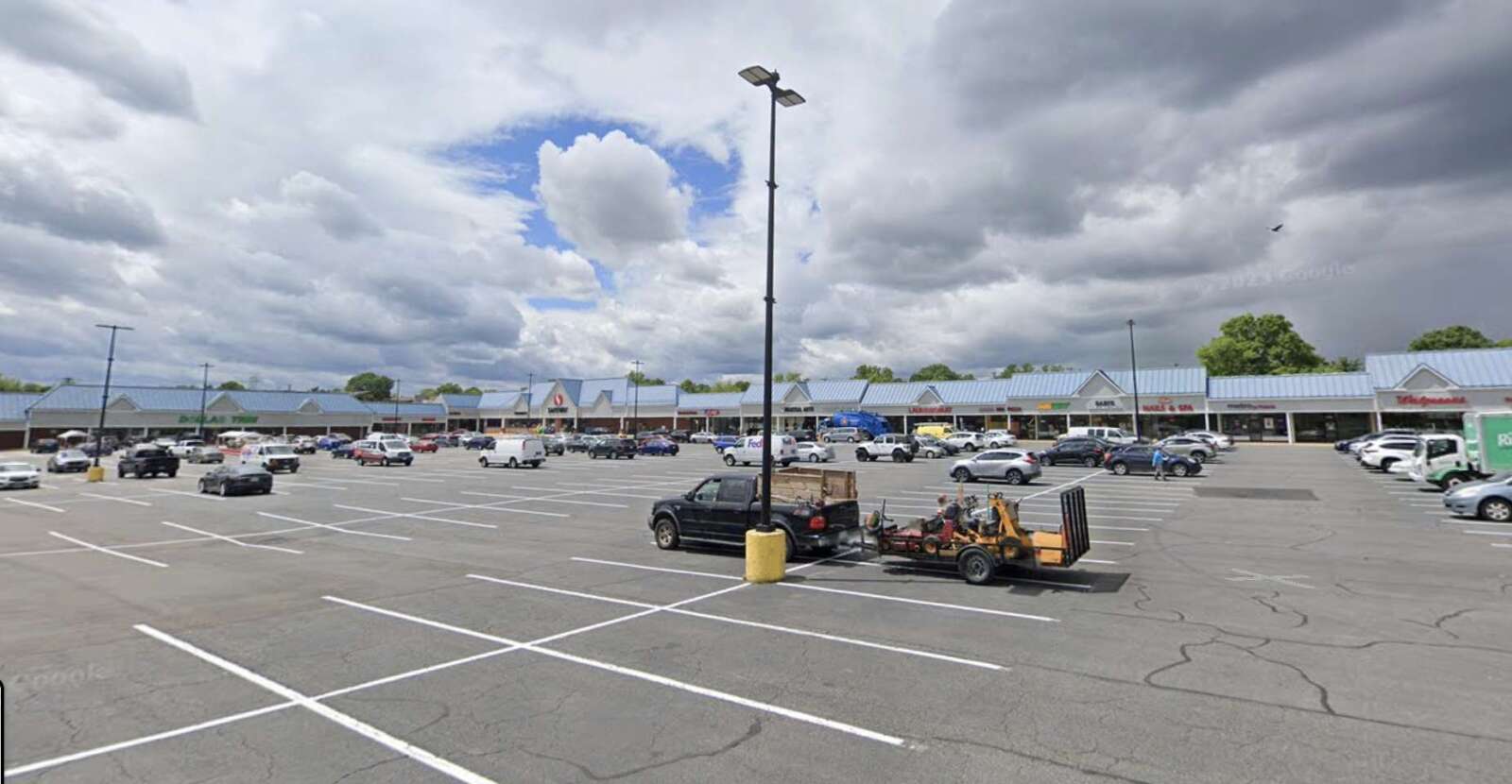
Franconia District Supervisor Rodney Lusk is asking the owner of Rose Hill Plaza to lower the number of residential units and increase retail space in its next redevelopment proposal.
The six-decade-old shopping center located off Franconia Road is slated for significant redevelopment but has met some community opposition in terms of how exactly that will be done and what the new center will include.
In response, the Fairfax County Board of Supervisors voted in April to essentially defer the proposed plans to allow owner Combined Properties to “further engage” with the community.
The developer’s preliminary proposal submitted on Oct. 25, 2022 envisioned adding a six-story, mixed-use residential building with 56,000 square feet of retail and green space to the shopping center.
Now, Lusk is asking for specific changes to that initial plan based on “community feedback” after meeting with Combined Properties twice since April, he said in a recent newsletter. Lusk said he was set to meet with the developer again shortly.
“My message to them will be the same as it has been in the previous two meetings,” Lusk wrote. “My expectation, based on community feedback, is that the next version of their proposal should significantly lower the amount of proposed residential units and significantly increase the proposed amount of retail space.”
Lusk said he believes Combined Properties will follow this request, but if not, the proposal will be deferred once again until “I believe [it’s] ready for public consideration.”
He anticipates the new proposal to be ready by the fall or early winter. If so, the Board of Supervisors could then approve a review by staff and remove it from Tier 3 of the county’s 2023 Comprehensive Plan Amendment Work Program.
Eventually, public hearings will be scheduled, sending the plan to the board for approval — potentially by the end of the year, Lusk noted.
However, some residents oppose reducing the amount of housing proposed at Rose Hill Plaza. The YIMBYs of Northern Virginia — a budding regional group that advocates for “more and denser housing” to make housing more affordable, per its website — said it is “disappointed” in Lusk’s request in a statement to FFXnow.
Rose Hill faces the same crisis that most of NoVA faces: working class residents – including essential workers like teachers, nurses, and government employees – cannot afford to live in the area. We remain excited by plans to upzone and develop the Rose Hill development with newer retail, more green space, and hundreds of new residential units. We are disappointed to hear that Supervisor Lusk has recommended deferring the project until the plans include more retail and less housing. The two need not be mutually exclusive: by building up, there’s plenty of space for more retail and more housing.
The group said that while a “vocal subset” of locals may oppose more housing, the idea has support from plenty of others who don’t have time to speak up, use English as a second language or are currently “priced out” of living in Rose Hill.
“Building a place people want to live and linger in is more important than an arbitrary amount of square footage assigned to retail,” local resident Alexis Glenn said. “Retail space will remain empty if we continue to scale back the housing needed to support it. Rose Hill will never be able to support the kind of high-quality retail and services the community desires if there isn’t a significant increase in housing.”
On the other side of the argument is the Rose Hill Coalition, a group of private citizens fighting against reducing retail at the shopping center. Founder Sharada Gilkey says the group is “neither encouraged nor discouraged” by Lusk’s statement, which she says came after she and the Rose Hill Civic Association talked to the supervisor last month. Read More

Lobster crab ravioli, Azerbaijani plov, lamb vindaloo, bubble tea and much more are on the menu for Fairfax City’s second annual Summer Restaurant Week.
Promotions start this coming Monday, Sept. 4 and run through Sunday, Sept. 10 at more than 30 locations, listed on the Fairfax City Restaurant Week website. Diners can explore $25 brunch and lunch menus and $40 dinner menus, plus two-for-$10 deals at participating establishments.
“It’s an invitation to sample and dine in the company of friends, inside or outside, in every corner of our city. It’s one of my favorite weeks of the year,” City of Fairfax Mayor Catherine Read said in a press release.
Though this is only the program’s second summer edition, Fairfax City has hosted restaurant weeks for six years. The Fairfax City Economic Development Authority and the Central Fairfax Chamber of Commerce are co-sponsoring the festivities.
The businesses participating in next week’s event include:
Audacious Ale Works, Baku Delicious, Bellissimo, Bollywood Bistro, Cameron’s Coffee & Chocolates, Capital Ale House, Curry Mantra, Draper’s Steak & Seafood, Dolce Vita, El Pollo Rico, Hamrock’s Restaurant, Jas & Fam Caribbean Flavor, Kim’s Kitchen & Bar, Marumen, Meokja Meokja, ONE Bar & Grill, Ornery Beer Company Public House, Patriots Pub and Grill, PJ Skidoos, Red Hot and Blue, Roots Natural Kitchen, The Auld Shebeen, The Wine House and Vivi Bubble Tea.
Commonwealth Brewing Company, Mackenzie’s Tunes & Tonics, My Empanadas, Ned’s New England Deck and Old Dominion Pizza Company are all participating in the summer restaurant week for the first time.
Local foodies can also partake in the Restaurant Association of Metropolitan Washington’s Summer Restaurant Week through Sunday (Sept. 3). Several Fairfax County restaurants are participating in that promotional campaign, which involves the whole D.C. area.

The fastest-growing company in Fairfax County is a Tysons-based cybersecurity firm whose stated goal is to “fundamentally change” how organizations get technical expertise.
MOXFIVE claimed the 39th spot overall and the top spot for the security industry on the latest Inc. 5000, an annual ranking of the country’s most successful privately owned companies based on their revenue growth.
This is Moxfive’s first time on the prestigious list, and among the 120 Fairfax County companies that got included this year, it has the highest ranking, according to the Fairfax County Economic Development Authority.
“Our overall and security industry rankings on the Inc. 5000 list are an acknowledgement of our team’s determination and success in maintaining an unwavering commitment to changing an industry by obsessing over delivering a superior customer experience,” MOXFIVE CEO and founder Mike Wager said in a press release. “Appearing on the Inc. 5000 list is also validation that our Platform…is the future of the industry.”
Founded in 2019, Moxfive describes itself as a specialized technical advisory firm that assists other businesses with responding to cyberattacks and bolstering their information technology capabilities.
Headquartered in The Plaza at Tysons Corner Center (1751 Pinnacle Drive, Suite 600), the company has seen its revenue grow 9,622% over the past three years, according to the 2023 Inc. 5000. It was also included on Inc.’s 2022 Best Workplaces list.
In a comment to the FCEDA, Wager lauded Fairfax County as “a fantastic area” to raise a family and start a business.
“We have been fortunate to achieve a great deal of success and I attribute much of that to the business environment in Fairfax County, which includes a tremendous amount of cybersecurity talent,” he said. “This has allowed us to find the people we need more easily and scale more quickly.”
Per the economic development authority, Fairfax County had 15 companies in the top 500 of this year’s Inc. 5000 and accounted for 44% of the 274 Virginia companies to make an appearance. The top 500 companies were featured in Inc. Magazine’s September issue, which hit newsstands on Aug. 23.
Last year, the county had 113 companies make the rankings, led by Integrated Managment Strategies — a Springfield-based small business consulting firm — at no. 76.

